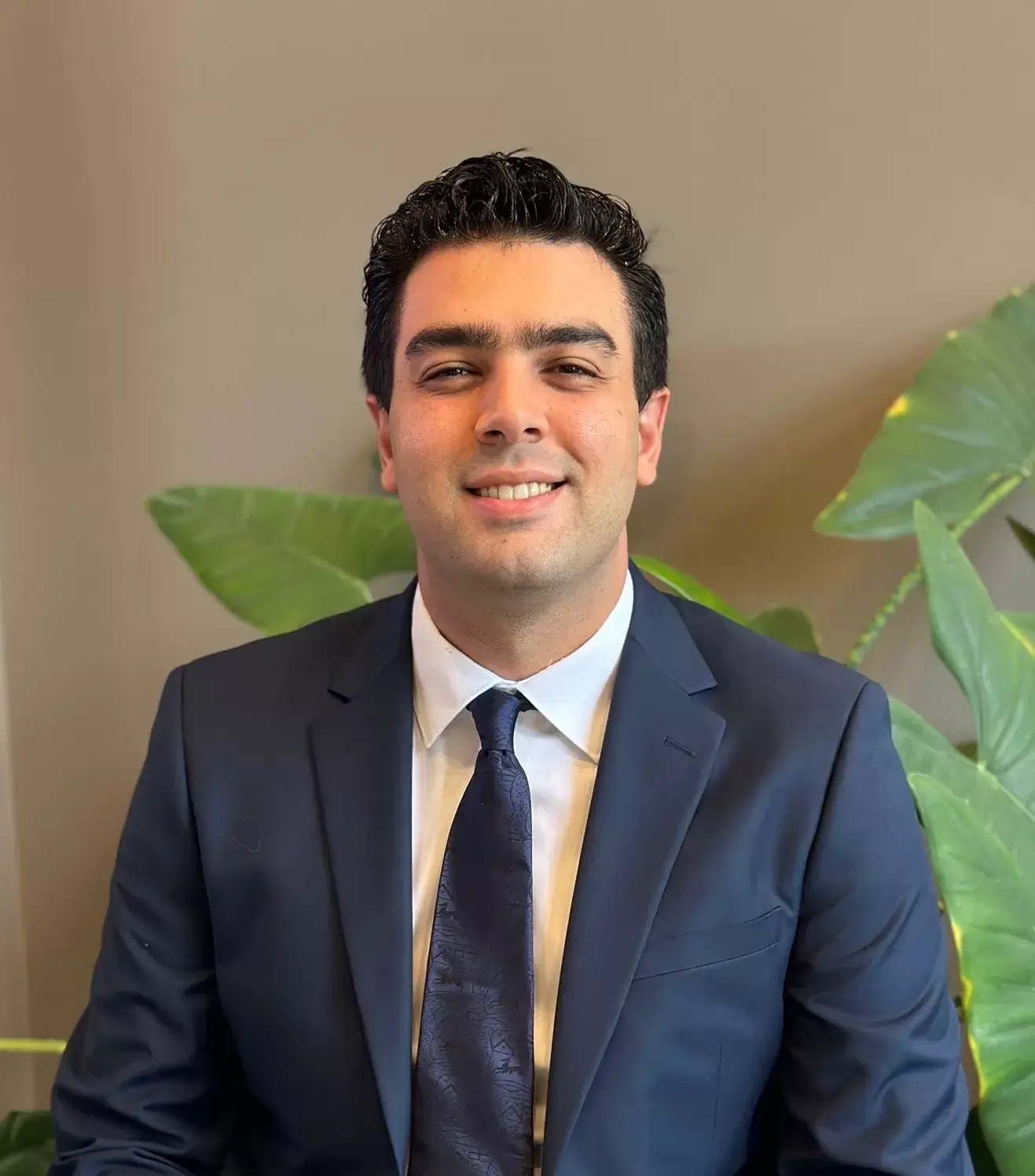Psychotherapy for Addiction at Oakville Psychotherapist
Committing to Psychotherapy and Counseling services is a powerful way to improve your mental health. Whether you’re struggling with couples or marriage issues, or seeking help for anxiety, managing ADHD, therapy helps strengthen family relationships and supports healthier communication.
- Psychotherapy For Men
- Psychotherapy for Women
- Depression
- Family Counselling Therapy
- Marriage Counselling and Therapy
- Couples Counselling And Therapy
- Family Counselling Therapy
- Child Counselling Therapy
- Anxiety Disorders
- Stress Management
- Trauma and PTSD
- Addiction
- Eating Disorders
- Self-Esteem and Self-Identity
- Grief and Loss
- Mood Disorders
- Personality Disorders
Here at Oakville Psychotherapist, our focus is on addiction treatment using evidence-based approaches such as Cognitive Behavioral Therapy (CBT) and Motivational Interviewing. We customize our methods to address the individual needs of each client, creating a safe and non-judgmental space for healing. Our goal is to explore the underlying causes of addiction, identify triggers, and develop effective coping strategies. We place importance on promoting self-awareness, emotional regulation, and resilience to support sustained sobriety. By improving overall mental health and well-being, we empower clients to make positive changes. Keep reading to learn how we can support you on your journey to recovery.
Oakville's Registered Psychotherapist
Regarding Oakville Psychotherapists
At Oakville Psychotherapy, we specialize in offering comprehensive therapeutic services tailored to individuals struggling with addiction. Our team of therapists is dedicated to helping clients navigate the complexities of substance abuse through a comprehensive treatment program. We understand that addiction is a chronic condition that requires a multifaceted approach, and we are here to support every step of the recovery journey.
Our treatment programs are carefully designed to meet the unique needs of each client. We utilize evidence-based practices, such as cognitive-behavioral therapy (CBT), to help individuals develop effective coping strategies. CBT is especially effective in treating addiction as it focuses on identifying and changing negative thought patterns and behaviors associated with substance use.
At Oakville Psychotherapy, we believe in creating a supportive environment where clients feel safe and understood. Our therapists offer confidential, one-on-one counselling sessions that provide a space to explore the underlying causes of addiction. This process involves addressing issues such as trauma, stress, and co-occurring mental health disorders.
We recognize that the path to recovery looks different for each person, and we are dedicated to providing personalized care. Our treatment programs incorporate various therapeutic modalities and holistic approaches to ensure a comprehensive recovery experience. By fostering a collaborative relationship between therapist and client, our goal is to empower individuals to take charge of their lives and achieve lasting sobriety.
In Oakville, our psychotherapy services serve as a source of hope for those struggling with addiction. We are committed to providing the tools, support, and guidance necessary for our clients to rebuild their lives and maintain long-term recovery.


Significance and Comprehension of Psychotherapy in Treating Addiction
Recognizing the significance of psychotherapy in addiction treatment is crucial for achieving lasting recovery and well-being. Here at Oakville Therapist, we emphasize the importance of addressing the root causes of addictive behaviors. Our therapists are committed to delivering comprehensive addiction treatment that is customized to meet the unique needs of each individual.
Individuals struggling with substance or behavioral addictions often encounter various challenges, such as difficulties with emotional regulation, handling stress, and navigating relationships. Through addiction counseling, we can assist clients in developing the necessary skills to overcome these obstacles. Our therapists in Oakville utilize evidence-based techniques to guide clients towards healthier behaviors and improved emotional well-being.
A key aspect of our addiction treatment approach is the utilization of personalized treatment plans. These plans are specifically tailored to address the individual needs of each client, ensuring that the therapy is effective and relevant. By focusing on the individual, we can offer counseling that is supportive and non-judgmental, creating a safe environment for healing.
Addiction rehabilitation in Oakville encompasses not only addressing the symptoms of addiction but also understanding the underlying issues that contribute to addictive behaviors. Our approach involves a combination of harm reduction and abstinence-focused strategies, depending on the goals and preferences of the client. This flexibility enables us to provide the most appropriate and effective treatment for each individual.
Role of psychotherapy in recovery
The role of psychotherapy in recovery is essential for helping individuals navigate their emotional and mental health challenges. Through the therapeutic process, clients can explore their thoughts, feelings, and behaviors in a safe and supportive environment. Psychotherapy allows individuals to gain insight into the root causes of their issues, develop coping strategies, and work towards personal growth and healing. The therapeutic relationship between the client and therapist is a key component in facilitating positive change and promoting overall well-being
Psychotherapy serves as a key element in the healing process by assisting individuals in uncovering and addressing the emotional issues that drive their addictive behaviors. When working with clients, our objective is to delve into the root causes of their addiction and the coping mechanisms they have developed over time. This deep understanding enables us to customize our approach, whether focusing on harm reduction or striving for abstinence goals, to suit each individual’s unique needs.
During our therapy sessions, we utilize evidence-based techniques that are specifically designed to nurture resilience and support long-lasting recovery. These techniques include Cognitive Behavioral Therapy (CBT) to challenge and modify harmful thought patterns, as well as Motivational Interviewing to boost clients’ motivation for change. By tackling the emotional issues underlying addiction, we assist clients in cultivating healthier coping strategies and boundaries.
Furthermore, psychotherapy is not only about addressing the present; it also involves building a sustainable future. We collaborate with clients to identify triggers and develop effective strategies for managing them, thus reducing the risk of relapse. This process entails exploring past experiences that may have contributed to their addictive behaviors and understanding how these experiences influence their current decision-making.
Our therapeutic approach also highlights the significance of resilience. By equipping clients with the necessary tools to navigate stress and emotional challenges, our aim is to empower them to uphold their recovery in the long term. The path to recovery is individualized for each person, but through psychotherapy, we provide a structured and supportive setting to assist individuals in reaching their objectives and leading healthier, more fulfilling lives.


The benefits of psychotherapy in addiction
The benefits of psychotherapy services in addiction includes providing a safe space for individuals to explore their thoughts and emotions, develop coping strategies, and work through underlying issues contributing to their substance use. Therapy can also help individuals build self-awareness, improve communication skills, and enhance their overall mental health and well-being. Additionally, psychotherapy can support individuals in developing healthy relationships, setting boundaries, and making positive changes in their lives to support their recovery journey
Many individuals struggling with addiction discover that psychotherapy provides vital support and effective strategies for managing their condition. Here at Oakville Psychotherapist, we utilize evidence-based techniques in psychotherapy to delve into the underlying emotional issues driving addictive behaviors. Addiction counseling offers a safe and non-judgmental space where clients can cultivate essential coping skills and emotional awareness crucial for achieving long-term recovery.
One of the key advantages of psychotherapy is the improvement of emotional regulation. By gaining insight into and managing their emotions, individuals can decrease the impulsivity that often leads to substance abuse. Through workshops and individual counseling, our therapists assist clients in developing resilience, a valuable quality for overcoming the hurdles of addiction. Learning to bounce back from setbacks is crucial, and resilience training forms a fundamental part of our therapeutic approach.
Furthermore, psychotherapy supports behavioral modification, enabling individuals to replace harmful patterns with healthier ones. This is accomplished through various strategies, including the establishment of boundaries. Creating clear boundaries helps clients safeguard their recovery and foster healthy relationships, which are frequently strained by addiction. Our therapists offer guidance in setting and upholding these boundaries effectively.
Emotional awareness is another vital aspect addressed in our sessions. By becoming more in tune with their emotions, clients can better recognize the triggers that prompt substance abuse. This heightened awareness, combined with practical coping techniques, empowers individuals to navigate life’s obstacles without turning to addictive behaviors.
Various approaches of Psychotherapy Service
There are various approaches to psychotherapy that can be used in the treatment of mental health conditions and emotional challenges
Today, we will explore various psychotherapy approaches that uniquely support individuals struggling with addiction. By understanding these methods, we can empower ourselves to choose the right path towards recovery.
Cognitive-behavioral therapy (CBT) focuses on identifying and changing negative thought patterns that drive addictive behaviors. By recognizing these patterns, we can develop healthier coping strategies and improve emotional regulation. CBT is especially effective in helping individuals understand the link between their thoughts, feelings, and actions.
Dialectical behavior therapy (DBT) combines cognitive-behavioral techniques with mindfulness practices. It highlights emotional regulation, distress tolerance, and interpersonal effectiveness, making it a powerful tool for those battling addiction. Through mindfulness-based therapy, DBT helps individuals stay present and manage their impulses more effectively.
Motivational interviewing is another crucial approach aimed at increasing an individual’s motivation to change. Through empathetic and non-confrontational conversations, therapists assist clients in exploring their ambivalence towards addiction and strengthening their commitment to recovery.
Trauma-focused therapy addresses the underlying trauma that often contributes to addictive behaviors. By working through traumatic experiences, individuals can lessen the emotional burden fueling their addiction and develop healthier coping mechanisms.
Psychodynamic therapy delves into the unconscious mind to uncover deep-seated emotional issues driving addictive behaviors. By enhancing self-awareness, this approach helps individuals understand the underlying causes of their addiction and supports long-term recovery.
Together, these psychotherapy approaches offer a comprehensive toolkit for addressing addiction. They not only assist individuals in managing addictive behaviors but also improve emotional regulation and self-awareness, leading to a healthier, addiction-free life.


Supportive Psychotherapy Overview
Supportive psychotherapy offers a safe and non-judgmental space where we can delve into the underlying reasons for addiction and create individualized treatment plans. Here at Oakville Psychotherapist, our focus is on establishing a supportive and understanding environment for individuals. This type of therapy is crucial in addressing addiction as it allows us to explore and address emotional, psychological, and social factors contributing to the addiction.
During our psychotherapy sessions, we utilize evidence-based techniques to build coping strategies, increase emotional awareness, and nurture resilience. By honing in on these areas, our goal is to empower clients with the necessary tools to effectively navigate the challenges of addiction. Tailoring treatment plans to each person’s specific circumstances and needs enables us to implement interventions that are targeted and more likely to lead to success.
A key aspect of supportive psychotherapy is enhancing emotional awareness. By recognizing and comprehending our emotions, we can pinpoint triggers and develop healthier responses. This heightened emotional intelligence is crucial for sustaining recovery, as it equips us to manage stress and prevent relapse.
Furthermore, we place a strong emphasis on fostering resilience. Resilience involves our capacity to rebound from setbacks and persist in making progress despite obstacles. In the realm of addiction, resilience is essential for maintaining long-term sobriety and coping with life’s challenges without resorting to substance use.
At Oakville Psychotherapist, supportive psychotherapy is not just a form of treatment; it’s a collaborative effort. Together, we strive towards achieving lasting recovery by addressing the root causes of addiction and devising strategies to overcome them. Through our joint dedication, our aim is to assist each client in attaining a healthier, addiction-free life.
Coping-Focused Psychotherapy Details
At Oakville Psychotherapist, we offer coping-focused psychotherapy to support individuals in developing healthy strategies to manage addiction triggers and stress. Our therapeutic approach is uniquely tailored to help clients navigate the complexities of addiction by providing practical tools and techniques for stress management and emotional regulation.
During our sessions, our focus is on assisting clients in identifying and addressing the underlying issues that contribute to their addictive behaviors. By understanding these root causes, individuals can begin their recovery journey with a solid foundation. Our therapists work with clients to build resilience, which is essential for overcoming the challenges that arise during recovery. Building resilience is a crucial aspect of coping-focused psychotherapy, as it allows clients to bounce back from setbacks and maintain their commitment to positive choices.
Educating clients on self-care practices is another important component of coping-focused psychotherapy. We emphasize the importance of self-care as a way to enhance overall well-being and prevent relapse. By incorporating self-care into their daily routines, clients can effectively manage stress and reduce the likelihood of turning to addictive behaviors as a coping mechanism.
Emotional regulation is also a key focus in our work. We help clients acquire skills to manage their emotions effectively, reducing the impact of addiction triggers. This enables them to take control of their reactions and make healthier decisions.
Ultimately, coping-focused psychotherapy at Oakville Psychotherapist is all about empowerment. Our goal is to equip individuals with the tools they need to navigate their recovery journey with confidence and resilience. By fostering a sense of empowerment, we support clients in making positive choices that enhance their long-term recovery and overall well-being.


Interpersonal Psychotherapy Explanation
Interpersonal psychotherapy for addiction focuses on addressing the underlying interpersonal issues and communication patterns that drive addictive behaviors. This therapeutic approach recognizes the significant impact of social interactions and communication styles on the addiction journey. By focusing on improving relationships and communication skills, individuals can gain insight into and change the patterns contributing to their addiction.
At its core, interpersonal psychotherapy (IPT) targets interpersonal problems and social functioning associated with addiction. IPT is a structured, time-limited approach aimed at reducing addiction symptoms by strengthening social support networks and resolving conflicts. Therapists help clients explore how their relationships influence addictive behaviors, paving the way for healthier relational patterns.
One of the main objectives of IPT is to enhance communication skills, enabling individuals to express their needs and emotions effectively. This improvement can lead to decreased misunderstandings and the development of more fulfilling connections with others. Enhanced communication often results in improved conflict resolution, which is crucial for addressing the interpersonal challenges that may have contributed to addiction.
Research underscores the effectiveness of interpersonal psychotherapy in addiction treatment, emphasizing its role in enhancing overall well-being. As individuals work through their interpersonal issues, they often experience improvements in social functioning, creating a more supportive and stable environment for recovery. This heightened social support is essential for long-term success in maintaining sobriety and cultivating a healthier, more connected life.
In-depth reflections on the dynamics of exploratory psychotherapy
In exploratory psychotherapy, we delve deep into the emotional and psychological factors that play a role in addiction. At Oakville Psychotherapist, our focus is on uncovering the underlying causes of substance abuse and addictive behaviors through this method. Our aim is to support long-term recovery by helping clients understand the root issues that drive their addiction.
During our addiction counseling sessions, we utilize evidence-based techniques to assist clients in exploring their past experiences and current emotional states. This approach enables us to identify and address trauma, unresolved conflicts, and other emotional triggers that may contribute to substance abuse. Developing effective coping strategies and enhancing emotional regulation are essential aspects of our therapy.
Each client receives a personalized treatment plan tailored to their individual needs and circumstances. Our therapists are experienced in creating customized approaches that take into account the client’s history, personality, and specific challenges. This ensures that our clients have the necessary tools for sustained recovery.
We take pride in offering a safe, non-judgmental space where clients can openly explore their addictive behaviors and emotions. This supportive environment fosters trust and promotes honest communication, which is crucial for effective therapy. Clients are more likely to engage deeply with the therapeutic process when they feel understood and accepted.
At Oakville Psychotherapist, exploratory psychotherapy is a vital aspect of our comprehensive addiction treatment program. By addressing the deep-rooted issues that contribute to addiction, we help clients lay a strong foundation for a healthier, addiction-free future. Through dedication and evidence-based practices, we guide our clients towards meaningful and lasting transformation.
Incorporating psychotherapy into the treatment plan
Building on our dedication to exploring the underlying causes of addiction, we now shift our focus to the role of integrating psychotherapy in supporting long-term recovery. Here at Oakville Psychotherapist, we firmly believe that delving into emotional issues and addictive patterns through psychotherapy is essential for achieving sustainable recovery. Through the use of various psychotherapy techniques, we assist individuals in gaining a deeper insight into their addiction and developing healthy coping mechanisms.
Our approach involves personalized therapy sessions tailored to the specific needs and objectives of each client in their addiction treatment journey. This ensures that the therapy is meaningful and impactful for the individual. Within these sessions, we concentrate on identifying and addressing the core emotional issues that often underlie addictive behaviors. By doing so, we not only address the surface-level symptoms but also work towards resolving the root causes of addiction.
The integration of psychotherapy into addiction treatment offers numerous advantages. One of the key benefits is an enhancement in emotional well-being. As clients learn to effectively manage their emotions in healthier ways, they frequently experience a decrease in the cravings and compulsions that drive their addiction. Furthermore, psychotherapy promotes heightened self-awareness, empowering individuals to identify and modify detrimental patterns in their behavior.
Our ultimate objective in therapy is to assist clients in achieving lasting recovery. This involves more than just a temporary cessation of addictive behaviors but a profound transformation that encompasses healthier habits and an improved quality of life. By incorporating psychotherapy into our addiction treatment programs, we equip individuals with the necessary tools for sustained success and resilience in their recovery journey.
Here at Oakville Psychotherapist, we are steadfast in providing comprehensive addiction treatment that addresses both the mind and emotions, paving the way for enduring change and significant recovery.
Therapeutic intervention to explore and process triggers
Identifying and addressing triggers through psychotherapy is crucial for preventing relapse and sustaining long-term recovery from addiction. Here at Oakville Psychotherapist, our focus is on assisting clients in recognizing and managing the triggers that lead to addictive behaviors. These triggers can stem from stress, emotional distress, environmental cues, and social situations.
In our psychotherapy sessions, we establish a safe and supportive environment for clients to explore and understand their addiction triggers. This setting encourages openness and honesty, which are key elements for effective treatment. One of the primary therapeutic approaches we utilize is cognitive-behavioral therapy (CBT). CBT helps individuals identify negative thought patterns and behaviors that contribute to their addiction. By becoming aware of these patterns, clients can develop healthier coping strategies to better handle their triggers.
Effectively managing triggers is essential for preventing relapse. By comprehending the underlying causes of these triggers, clients can anticipate and prepare for situations that may trigger a relapse. Throughout our sessions, we collaborate with clients to create personalized relapse prevention strategies. These strategies often involve practical tools and techniques to manage stress, enhance emotional resilience, and establish a supportive network.
Overcoming addiction triggers is an ongoing process that requires dedication and consistency. By directly addressing these triggers, clients can significantly increase their chances of achieving long-term recovery. Our objective is to empower clients with the skills and confidence necessary to successfully navigate their recovery journey.
Exploring the dynamics of communication within psychotherapy sessions
In psychotherapy sessions, effective communication is key to establishing trust and understanding between the therapist and client. At Oakville Psychotherapist, we prioritize honing strong communication skills to cultivate a therapeutic relationship that promotes openness and honesty. Through active listening and empathy, we create a safe and supportive environment where clients feel heard and validated without judgment.
In our sessions, we carefully observe nonverbal cues that often convey unspoken emotions and thoughts. These cues help us assess the client’s comfort level and willingness to delve deeper into their issues. We also utilize open-ended questions to encourage clients to explore their thoughts and feelings more deeply. Questions like, ‘Can you share more about what triggers your cravings?’ prompt clients to reflect and gain insights into their addictive behaviors.
Our approach includes reflections, where we rephrase what clients have shared to confirm our understanding and demonstrate our genuine interest in their healing journey. This technique not only clarifies the client’s statements but also reinforces their sense of being valued and supported.
Creating a non-judgmental space is crucial for addressing sensitive topics related to addiction. Clients must feel safe discussing their cravings and struggles without the fear of being criticized. This open dialogue is essential for developing effective strategies for managing cravings and achieving overall recovery.
Through clear and honest communication, clients develop a deeper understanding of their addictive patterns. This awareness is the first step towards adopting healthier coping mechanisms and attaining long-lasting recovery. At Oakville Psychotherapist, we are dedicated to guiding clients through this transformative process with compassion and expertise.
Development and Dialogue in the Therapeutic Process
Regular progress assessments in therapy sessions are crucial for monitoring recovery milestones and identifying areas for improvement. At Oakville Psychotherapist, we place a strong emphasis on these assessments to ensure that our clients are making progress in overcoming their addiction challenges. By consistently evaluating progress, we can adapt our approach and customize strategies to address individual needs, enhancing the effectiveness of the therapeutic process.
Effective communication is fundamental in therapy sessions. Establishing open and honest dialogue between the therapist and client creates a supportive atmosphere. This open communication allows us to tackle addiction challenges directly and implement evidence-based strategies that lead to positive outcomes. Through this transparent exchange, clients can freely express their thoughts and emotions, which is essential for their journey towards recovery.
Our therapists utilize various evidence-based techniques to facilitate meaningful communication. These strategies not only help clients articulate their experiences but also assist them in developing crucial coping skills. Through these interactions, clients learn to better manage their addiction and build resilience against future challenges.
Throughout the therapy process, we encourage clients to openly share their thoughts and emotions. This practice enriches the therapy sessions, making them more productive and focused on achieving recovery objectives. By fostering a environment of trust and understanding, we support clients in navigating their addiction challenges more effectively.
Navigating the obstacles of addiction
The journey towards overcoming addiction challenges often begins with exploring and addressing the underlying emotions and traumas that drive addictive behaviors. Here at Oakville Psychotherapist, we recognize that each person’s path to recovery is unique, and it requires a personalized assessment and treatment plan. In Ontario, whether you are struggling with drug addiction, substance use, or gambling addiction, our individualized treatment strategies focus on the psychological and emotional components of addiction.
We embrace a harm reduction approach that honors your goals and preferences, offering a caring and non-judgmental space for healing. Our outpatient addiction services are designed to fit into your schedule, allowing you to receive the support you need without disrupting your daily life. This flexible approach ensures that you can fulfill your obligations while working towards a successful recovery.
Through a comprehensive assessment process, we aim to uncover the root causes of addictive behaviors, including any underlying mental health issues. By considering the whole person, we can tailor our treatment plans to address not only the symptoms but also the deeper issues driving the addiction. This holistic approach enhances the chances of long-term recovery and helps in developing resilience against future challenges.
We understand that overcoming addiction involves more than just ceasing substance use or gambling. It also entails developing healthy coping mechanisms and rebuilding self-trust and trust in others. By delving into the emotional and psychological aspects at play, we assist you in breaking the cycle of addiction and achieving enduring sobriety.
Reach out to Oakville Psychotherapy for support with addiction
As a psychotherapist specializing in addiction treatment, I urge you to take the first step towards your recovery by reaching out to Oakville Psychotherapy for Addiction today. At Oakville Psychotherapist centre, our focus is on providing top-quality treatment for individuals struggling with drug and alcohol addiction. Our team of addiction specialists is highly trained and experienced in delivering a comprehensive and personalized approach to drug addiction treatment.
Our facility offers a safe and supportive space to better understand where you can address your addiction in a confidential and compassionate setting. We understand that each person’s journey to recovery is unique, and we are here to support you every step of the way. Our dedicated team of professionals includes some of the most qualified and committed addiction specialists in the field.
The importance of seeking help early cannot be overstated. We work closely with the Ministry of Health to ensure that our treatments adhere to the highest standards of care. Whether you are dealing with drug addiction or alcohol dependency, our goal is to equip you with the tools and support needed for a successful recovery.
Our approach incorporates various forms of psychotherapy tailored to your individual needs. By reaching out to us, you are taking a crucial first step towards a healthier and more fulfilling life. We offer a range of services aimed at helping you understand and overcome addiction, from individual therapy sessions to group support.
Do not delay any longer—take the initiative today. You can visit us at 243 North Service Rd W #106F, Oakville, ON L6M 3E5, or contact us by phone at (647) 360-5880. Your journey towards recovery begins with a simple step: reaching out to us.
Commonly Asked Questions about addiction and how psychotherapy can help
Which therapeutic approach is most effective for treating addiction?
When considering which approach may be most beneficial for addressing addiction, it is important to explore Cognitive-Behavioral Therapy (CBT) and Motivational Interviewing (MI). CBT can assist in recognizing and altering negative thought patterns and behaviors, while MI focuses on building empathy and addressing ambivalence. Both of these approaches have a solid foundation of research supporting their effectiveness. Additionally, Dialectical Behavior Therapy (DBT) and Acceptance and Commitment Therapy (ACT) offer valuable tools for managing emotions and supporting long-term recovery efforts.
What's the Difference Between a Therapist and a Psychotherapist?
When we consider the distinction between a therapist and a psychotherapist, it primarily revolves around training and specialization. Therapists offer general counseling for various life challenges, while psychotherapists focus on diagnosing and treating mental health disorders through talk therapy. Psychotherapists undergo extensive education in psychology and therapeutic techniques, enabling them to address severe mental health issues. Essentially, psychotherapists possess a deeper clinical expertise compared to general therapists.
Should I seek counseling or psychotherapy?
When deciding between a counselor and a psychotherapist, it is important to consider our unique therapeutic needs. Counselors typically focus on providing short-term solutions and addressing specific issues by offering advice and practical strategies. In contrast, psychotherapists delve deeper into exploring underlying causes and facilitating long-term changes, often utilizing a range of therapeutic modalities. If our addiction concerns are intricate and we are seeking thorough exploration and healing, a psychotherapist may be the more suitable choice. Let us make our decision based on our individual therapeutic goals and requirements.
What Is the Difference Between Psychotherapist and Counselling?
When considering ‘what is the difference between psychotherapist and counseling?’, we should know that psychotherapists offer in-depth therapy for mental health conditions, while counselors provide guidance for specific problems. Psychotherapists focus on exploring thoughts, emotions, and behaviors for personal growth, whereas counselors focus on problem-solving and skill-building. Both roles are essential, but psychotherapists often have advanced degrees and offer more intensive, long-term treatment options.
About Town of Oakville
Oakville, a scenic town situated between Toronto and Hamilton, is celebrated for its stunning parks, well-kept neighborhoods, and strong sense of community. With parks like Tannery Park offering serene views of Lake Ontario, Oakville residents enjoy easy access to nature right within the town’s limits. The expansive Bronte Creek Provincial Park is perfect for families and nature lovers, featuring hiking trails, children’s play areas, and picnic spots. Gairloch Gardens, with its beautifully landscaped grounds and lakeside location, provides a tranquil retreat for those looking to escape into nature or appreciate art in the park’s on-site gallery.


The town’s neighborhoods, including the bustling Downtown Oakville and the historic district of Old Oakville, showcase a harmonious blend of modern convenience and traditional charm. Downtown Oakville, with its boutique shops, cafes, and cultural festivals, is a hub of activity, while Old Oakville’s cobblestone streets and heritage homes offer a glimpse into the town’s rich history. Neighborhoods like Glen Abbey, known for its renowned golf course, and Joshua Creek, with its modern amenities and proximity to top-rated schools, make Oakville a desirable location for families. Whether you’re enjoying a day at one of Oakville’s many parks or exploring its unique neighborhoods, the town offers a perfect balance of natural beauty and urban life.
- Dundas Street (Highway 5)
- Trafalgar Road
- Lakeshore Road
- Speers Road
- Third Line
- Upper Middle Road
- Bronte Road
- Royal Windsor Drive
- Winston Churchill Boulevard
- Ford Drive
- Dorval Drive
- Rebecca Street
- Great Lakes Boulevard
- 16 Mile Drive
- QEW (Queen Elizabeth Way)
- North Service Road
- South Service Road
- Maple Grove Drive
- Burnhamthorpe Road
- Glenashton Drive
- West Oakville
- Falgarwood
- Kerr Village
- Clearview
- West Oak Trails
- Bronte
- Palermo
- Ennisclare Park
- Glen Abbey
- Uptown Core
- Oakville East L6K
- Oakville South L6L
- Oakville North L6H
- Oakville West L6M
- Oakville Northeast L6J


